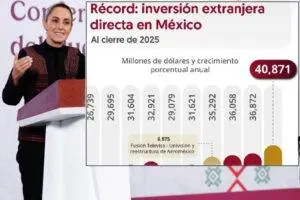La Jornada editorial, Friday, August 18, 2023
The US government decided to convoke a dispute resolution panel under the USMCA in order to force Mexico to purchase and consume genetically modified corn produced in the neighboring country. This is the latest phase of a growing dispute that began in January with requests for explanations of reasons and relevant information on certain Mexican measures related to biotech products (i.e., the ban on that genetically modified organism [GMO] for human consumption). In March the next step was a formal request for technical consultations, and in June to dispute settlement consultations.
The White House’s actions fall within the legal framework of the trilateral free trade agreement, and it is within Washington’s right to resort to them when it believes its interests have been violated. Legality does not make it any less regrettable that Joe Biden’s administration is acting as the representative of its country’s powerful agribusiness and trying to impose on others the consumption of products whose effects on human health are the subject of intense controversy. Worse still is that the U.S. goverernment weighs in on behalf of these transnationals in the name of the fight against climate change and food security efforts, when decades of practical experience have shown that the technical system built around GMOs represents one of the greatest threats to these causes.
On the one hand, all GMOs are produced under a monoculture system, thus destroying the planet’s biodiversity and posing the danger of the annihilation of all types of animal and plant species. In addition, they are designed to operate on the basis of extensive land and energy-intensive models, making them major emitters of greenhouse gases. To top it off, large extensions of monocultures are a vehicle for the spread of pests. Thus, transgenic seeds are inseparable from pesticides and herbicides that multiply the damage to the environment and pose an additional danger to human life. The best known of these, glyphosate, is used irresponsibly in the United States, but is banned or restricted in 18 countries, as well as in several cities in Spain, Argentina, and New Zealand, in 80 percent of the provinces and territories of Canada, and even in three U.S. cities. On the other hand, it is an irrefutable fact that as soon as GMOs patented by large corporations enter a country, it loses its food security and sovereignty. The case of Haiti is as illustrative as it is dramatic: in 1995, Bill Clinton convinced the Haitian authorities to eliminate tariffs on rice imports, arguing that their low prices would benefit the population and stimulate the modernization of local agriculture. In less than a decade, the dumping of rice produced by highly subsidized U.S. farmers led to the abandonment of the Haitian countryside, leaving the peasants destitute; then came the economic crisis and Haiti found itself unable to produce or import food because of its lack of foreign exchange. The result was a famine and catastrophic impoverishment from which Haitians have not been able to recover. In 2010, Clinton expressed regret, but his belated apology did not reverse the disaster.
The panel that will decide the future of GM corn in Mexico will be held amid highly specialized discussions. This context should be reassuring given the ample evidence that GMOs are a danger to human health, food security, and life on Earth. Unforbitunately, the scientific community has been systematically bought off by agribusiness on the basis of grants, fellowships, generous and self-serving funding of research programs, and opportunities for enrichment through providing stock options to its elite employees. In this scenario, it is foreseeable that the experts summoned by Washington will put their personal interests before scientific ethics, while the Mexican government will find it difficult to find honest academics who are committed to science rather than to their sponsors.
The outlook is clearly unfvorable, but the battle is unavoidable to protect Mexican agriculture and the population’s wellbeing. In the immediate future, the authorities will have to make every effort to recruit impartial specialists to defend the country’s position in the panel’s forums, but it is clear that the only definitive remedy is to review the USMCA to rid it of its harmful components.
Source: https://www.jornada.com.mx/2023/08/18/edito










